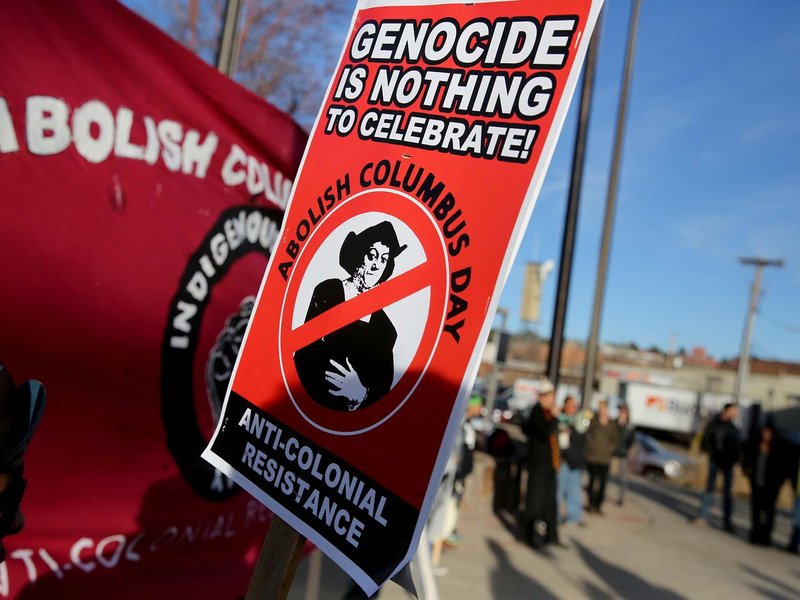The Timeline History of Celebrating (and Not Celebrating) Columbus Day
The holiday has been controversial practically since its inception
image: http://thumbs.media.smithsonianmag.com//filer/8c/7b/8c7ba968-66ce-4e66-a557-7c5aaae2721b/ap_292514899940.jpg__800x600_q85_crop.jpg

1492, Columbus sailed the ocean blue.Ē Itís a rhyme many people remember from their elementary school days. Today, most school children learn about the different explorers that came to the Americas in the late 15th and early 16th centuries, including Christopher Columbus. Since his arrival in the New World, the Columbian Exchange of goods and ideas started and has continued to today, with both positive and negative effects.
Even though Columbus sailed under the Spanish flag, he was born in Genoa, Italy, in 1451, and his Italian heritage has been a point of pride for Italian-Americans since as early as 1792, the 300th anniversary of his journey across the Atlantic. The first official recoginition of Columbus Day came in 1892, when President Benjamin Harrison issued a proclamation that encouraged Americans to celebrate the diversity of America through the lens of the 400th anniversary. Harrison wanted to draw attention to the positives that all Americans had to offer to the nation. In 1934, President Franklin Roosevelt declared Columbus Day a federal holiday.
Today, support for Columbus Day is waning, as recognition of the horrors of Columbusí actions upon arrival to the Americas increases. Why celebrate such plundering and pillaging?
Many cities in the United States, and even some states, have in recent years moved to change the focus of Columbus Day off its namesake to the Native Americans who were already living and thriving here prior to Columbus. Berkeley, California, started a movement of cities voting to change Columbus Day to instead celebrate Indigenous Peoples Day in 1992. Many cities have followed, including Minneapolis-Saint Paul, Minnesota; Seattle, Washington; and Cambridge, Massachusetts. Multiple states also refuse to celebrate Columbus Day, including South Dakota, Hawaii, Alaska and Oregon.